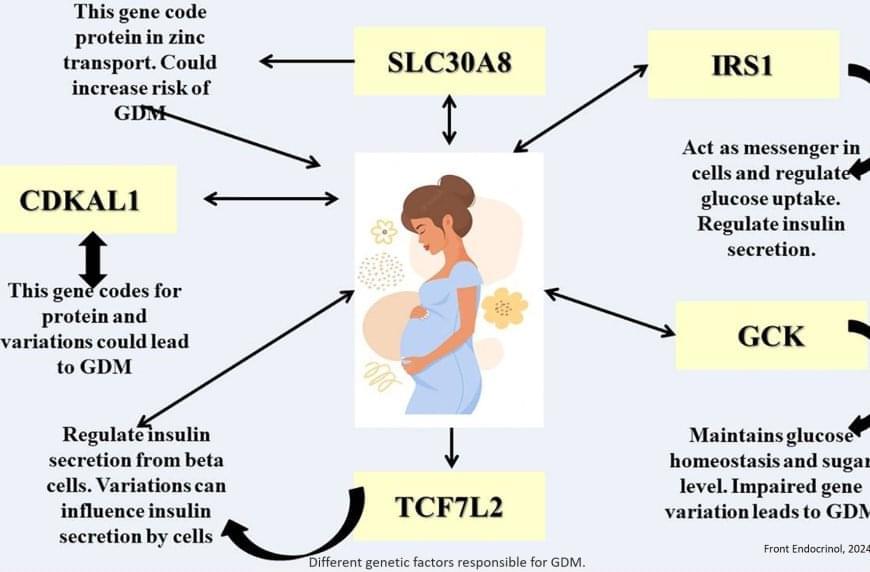Gestational diabetes is a disorder characterized by abnormally high levels of blood glucose (also called blood sugar) during pregnancy.
Affected women do not have diabetes before they are pregnant, and most of these women go back to being nondiabetic soon after the baby is born. Gestational diabetes is often discovered during the second trimester of pregnancy.
The disease has a 30 to 70 percent chance of recurring in subsequent pregnancies.
Gestational diabetes mellitus (GDM) is influenced by both genetic and environmental factors. Polymorphisms in genes related to glucose metabolism and insulin signaling, such as TCF7L2, have been associated with increased risk. This gene influences insulin secretion and glucose production, affecting the body’s ability to regulate blood sugar during pregnancy. Other implicated genes include GCK, encoding glucokinase, and MTNR1B, involved in melatonin receptor signaling.
More information on genetic factors that contribute to the development of GDM is provided in the link below.
